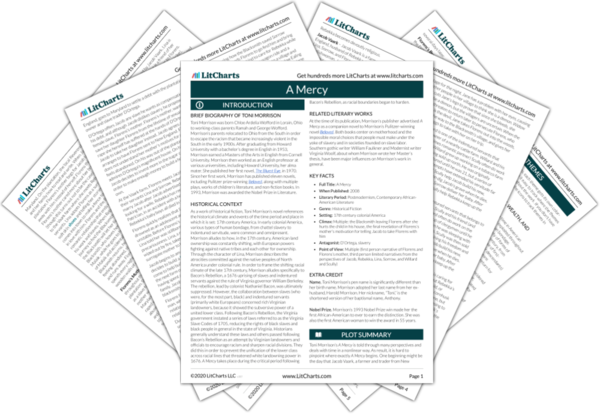LitCharts assigns a color and icon to each theme in A Mercy, which you can use to track the themes throughout the work.
Human Bondage, Wealth, and Humanity
The Oppression of Women, Violence, and Female Community
Motherhood, Heartbreak, and Salvation
Land, Exploitation, and the American Pastoral
Religion, Morality, and Otherness
